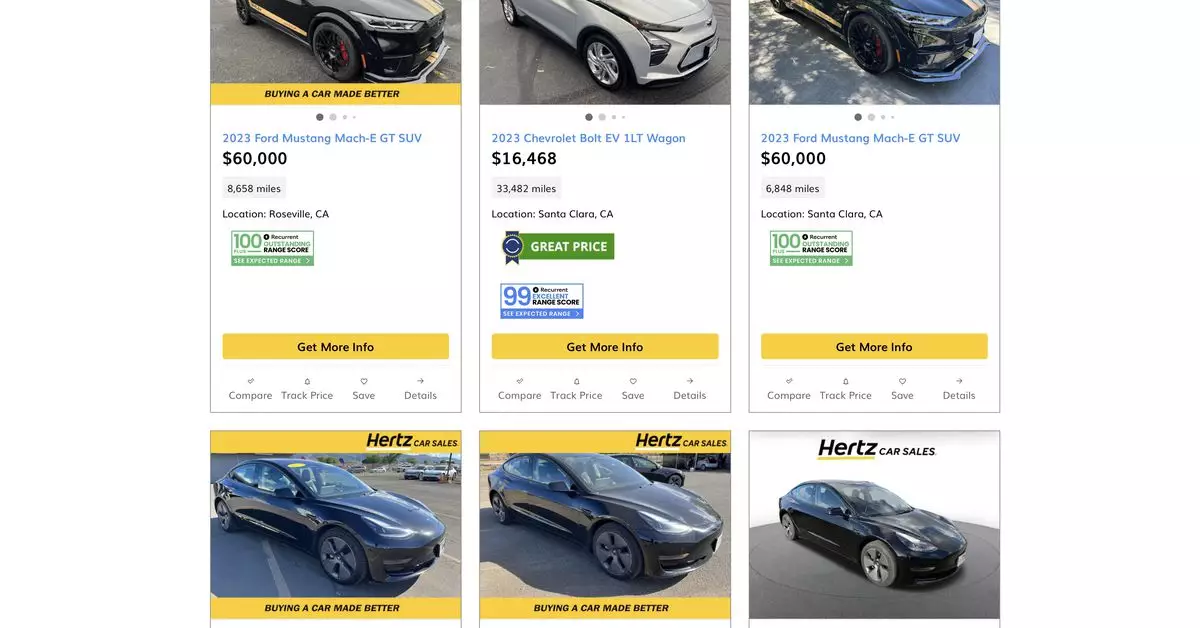In a striking move that signals a shift in the electric vehicle (EV) rental market, Hertz has recently reached out to its customers with an enticing offer: the opportunity to purchase the EVs they have rented. This initiative targets customers who have opted into Hertz’s communications, providing them with a seamless pathway from rental to ownership. With competitive pricing on popular models like the Tesla Model 3 and Chevy Bolt, the proposition is tailored to meet the needs of eco-conscious consumers who value both flexibility and sustainability in their vehicle choices.
The details of the buyout offers are impressive, especially when considering the affordability of the vehicles relative to the mileage they have accrued. For instance, one anecdote from a renter reveals a Tesla Model 3 being offered for $17,913—a price that aligns closely with current market listings for similar vehicles, which typically have higher mileage. This trend is supported by renters who have reported offers on other electric models like the Chevy Bolt and Polestar 2, some with mileage considerably below average. Such competitive pricing is not only a financial incentive for renters but also indicates Hertz’s desire to make used EV purchases more accessible and attractive to consumers.
Hertz is supplementing these buyout offers with a limited warranty, covering the powertrain for 12 months or up to 12,000 miles. In addition, renters are given a buy-back guarantee within a week of purchase—a safety net designed to ease post-purchase anxiety. These measures could potentially convert hesitant renters into buyers by reducing the perceived risks associated with acquiring used vehicles. Offering such warranties reflects Hertz’s commitment to customer satisfaction and paves the way for a broader acceptance of EVs in the consumer market.
Despite the promising initiative, Hertz’s history suggests a cautious optimism. Less than a year ago, the company reconsidered its ambitious plans for an electrified rental fleet, citing challenges in customer demand and difficulties with vehicle repairs, particularly with certain Tesla models. The pivot away from purchasing additional Polestar 2s and the decision to sell off 30,000 rental Teslas highlighted the volatility within the EV rental scheme. By learning from these setbacks, Hertz appears to be re-strategizing, potentially using the rental experience as a means to stabilize their offering while increasing car sales in the evolving market.
As communication director Jamie Line explained, this initiative is not just a special offer but part of a broader strategy to connect rental experiences with sales opportunities. Hertz is effectively raising awareness about their foray into car sales while harnessing the buying power of customers who are already considering the car they have on rent. Through this innovative blending of rental and sales efforts, Hertz is placing itself at the forefront of the electric vehicle market—a vital move as consumers rapidly pivot toward eco-friendly transportation solutions.
By combining rental experiences with sales opportunities, Hertz is forging a new path in the EV sector, aiming to cater to the changing preferences of today’s environmentally-aware consumers.

